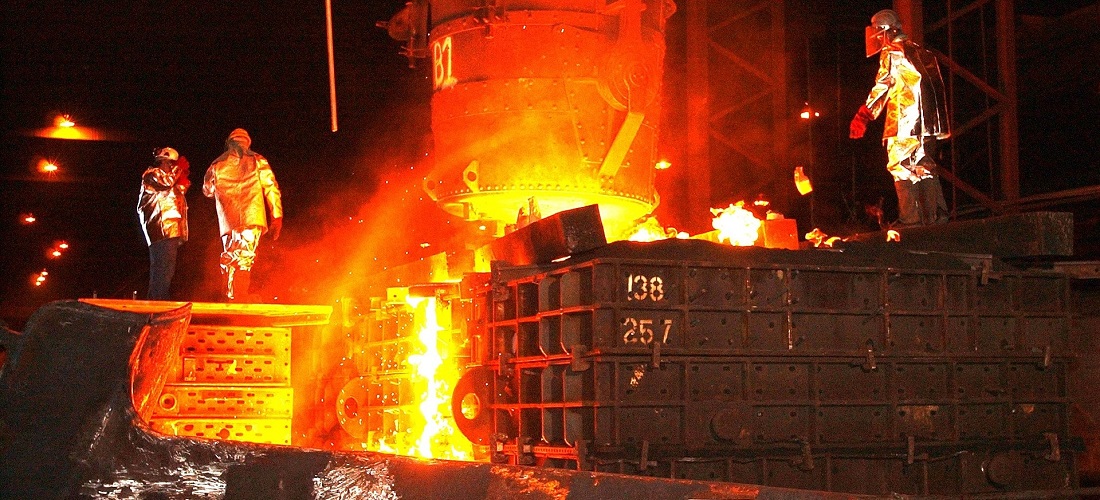
Brazil’s Steel Sector Threatened by Imports, Urges Government Action
Sep, 28, 2023 Posted by Gabriel MalheirosWeek 202339
On the verge of revising upward its steel import projections for 2023, the Brazilian steel sector may suspend operations and face “imminent” layoffs if the current 40% capacity utilization rate persists and the government doesn’t take emergency measures to curb the increasing influx of imported products, particularly from China.
According to the Brazilian Steel Institute, the projected 25.6% growth in imports for this year will likely be revised to between 40% and 42%. “In my long experience in this competitive process, I am extremely concerned,” said entrepreneur Jorge Gerdau Johannpeter during a debate on Wednesday (27) at the Aço Brasil 2023 Congress, where the presidents of steel companies operating in the country convened.
In the panel, the executives were unanimous: if there isn’t an immediate increase in the import tariff to 25%, similar to what countries like the United States, Mexico, and the European Union have already done, more drastic measures like suspending operations and layoffs will be necessary. Gerdau already has 600 employees with suspended work contracts (lay-off) across various units.
“If we aren’t facing a perfect storm, we’re dealing with a dramatic situation,” said Jefferson De Paula, president of ArcelorMittal Brazil. The multinational invested BRL 12 billion in the Brazilian steel sector over the last decade and has factories in the country considered “benchmarks” under different criteria within the group, but competing with Chinese products is uneven.
The imbalance between supply and demand in the Brazilian market mainly results from the growing volume of Chinese exports to Brazil and South America, where there have been no barriers to the entry of these products. Much of the 567 million-ton overcapacity in the world is concentrated in China, which is currently the target of 240 cases of unfair trade practices.
See the chart below for a month-on-month comparison of Brazilian steel imports (hs 72-73) from January 2019 and July 2023. The data is from DataLiner.
Brazilian steel imports | Jan 2019 – Jul 2023 | TEU
Source: DataLiner (click here to request a demo)
For Frederico Ayres Lima, president of Aperam South America, the increase in steel imports during a time of declining national apparent consumption is a perfect storm. And this problem is structural, not just cyclical. “This is the second year this has happened, and there’s no expectation that the situation will ease,” he commented.
For Gustavo Werneck, president of Gerdau, the advantage of the perfect storm is that it ends. “I have an optimistic view of the opportunities the sector has ahead. But we have to solve some problems to see the sky clear as soon as possible,” he said, describing Chinese imports as “predatory.”
According to Marco Polo de Mello Lopes, executive president of Aço Brasil, in 2000, China represented 1.4% of Brazilian imports of steel products. Today, that share has risen to 54.2%, or 1.7 million tons. While other countries sought to defend against China’s advances in international trade, Brazil ended up facilitating the entry of its products.
The sector has already approached the government with a request to raise the steel import tariff to 25% on an emergency basis but has faced resistance. “Consumer sectors have approached the government, arguing that raising the tariff aims to increase prices [in the domestic market],” said Marco Polo.
According to the executives, this argument lacks foundation since the industry currently has a 40% capacity utilization rate. Therefore, an increase in prices following the higher tariff would not result in higher domestic sales for steel companies.
“If we can’t reach this 25% [import tariff], there is a risk that China will bombard Brazil and force us to reduce capacity by 10%, 20%, or 30%,” said Jorge Gerdau. The entrepreneur believes that the historical negotiation methods of the sector, used to achieve the 25% import tariff, may not work. An alternative would be to increase pressure on congressmen. “I don’t see decision-making capacity through conventional bureaucratic processes. I am sensing insecurity in the governmental decision-making process. We will probably have to change our political approach,” he said.
For Werneck, Gerdau’s president, if emergency measures are not taken in 30 days, there is a real risk of “damage.” “We have 600 employees on lay-off. In Ceará, we have a completely idle plant, from North to South, there are shifts that aren’t operating,” he said.
According to De Paula, from ArcelorMittal, China currently has 200 million tons of steel overcapacity and is installing another 100 million tons, also subsidized by the government, at the same time as the local GDP loses traction. “If this 40% capacity utilization continues, we [the sector] will have to shut down plants,” he said. The executive also said that in 2023, ArcelorMittal Brazil will produce 1.3 million tons less than initially budgeted due to this complex situation in the domestic market. The company says it can produce between 15 and 16 million tons per year in the country, and the original forecast was to operate at full capacity.
-
Meat
Dec, 06, 2022
0
Pork: Brazilian exports reach 84,881 K tonnes in November
-
Ports and Terminals
Oct, 03, 2023
0
Port of Itajaí operator selection takes unexpected turn as top bidder disqualified
-
Ports and Terminals
Aug, 03, 2021
0
Paranaguá infrastructure allows simultaneous unloading of fertilizers
-
Jul, 02, 2020
0
Brazilian iron ore exports recover in June

